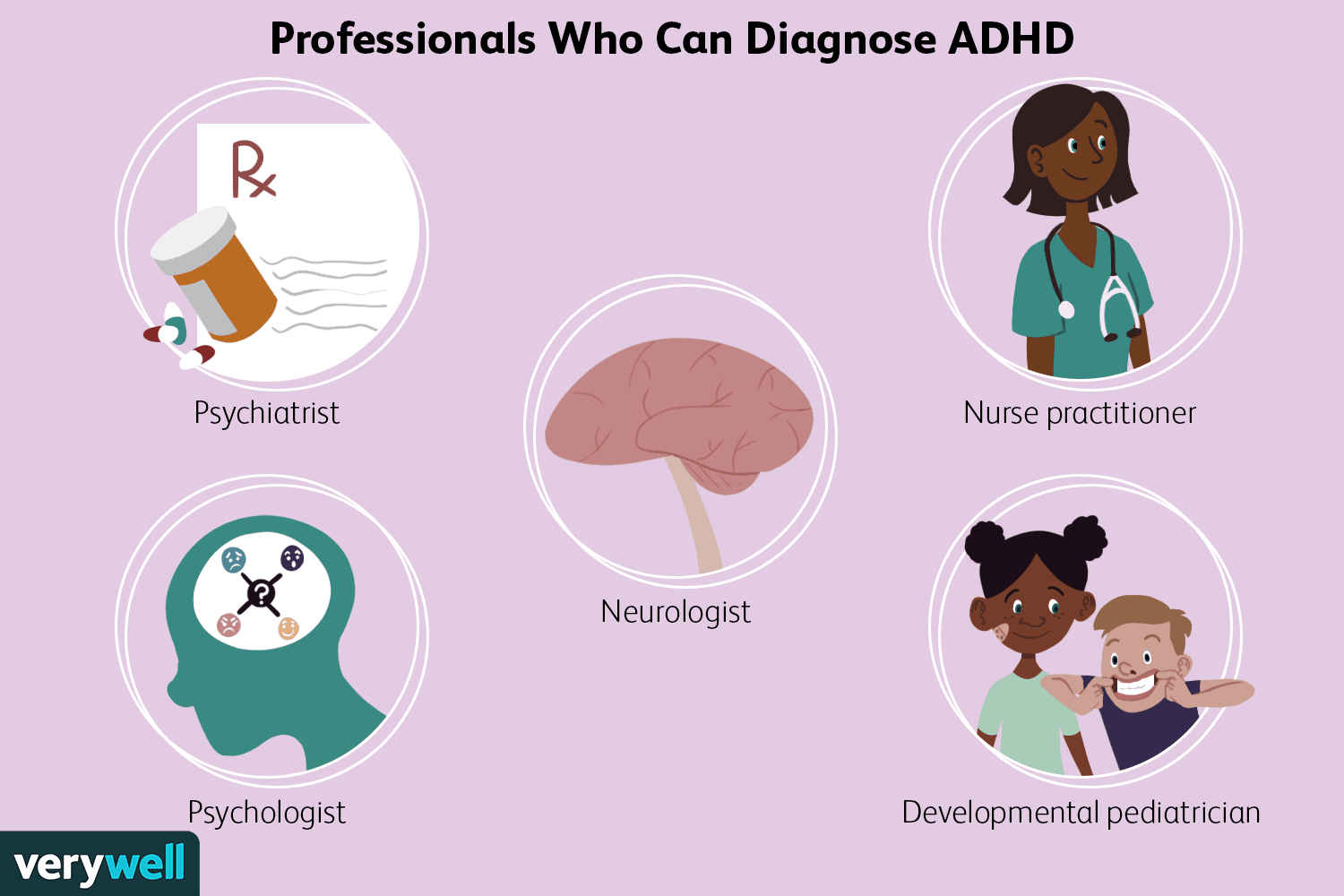
7 Common Signs of Adult ADHD: Understanding Symptoms, Diagnosis, and Treatment
January 11, 2024 - Reading time: 10 minutes
Attention Deficit Hyperactivity Disorder (ADHD) is a common neurodevelopmental disorder that affects millions of people worldwide. It can manifest in various ways, making it challenging for individuals to focus, control their impulses, and manage daily tasks effectively. If you suspect that you or someone you know may have ADHD, self-assessment tools are available to help identify potential signs and symptoms. However, knowing when to seek professional help is crucial in receiving an accurate diagnosis and appropriate treatment.
Self-Assessment Tools for ADHD
Online Assessments:
There are numerous online self-assessment tools available that can help you determine if your symptoms align with the criteria of an ADHD diagnosis. These tests often include a series of questions related to attention, impulsivity, and hyperactivity. Keep in mind that these assessments should be used as a starting point for further investigation rather than a definitive diagnostic tool.
Signs That Indicate the Need for Professional Evaluation

Persistent Symptoms:
If you have experienced symptoms of ADHD since childhood and they continue to impact your daily life as an adult, it may be time to seek professional help. Persistent difficulties with focus, impulsivity, and hyperactivity can significantly affect relationships, work performance, and overall well-being.
Impact on Daily Life:
If your ADHD symptoms are causing significant distress or interfering with essential aspects of your life, such as personal relationships, job performance, or daily tasks, it is important to consult a professional. Seeking help can lead to improved coping strategies and better overall functioning.
Co-Occurring Mental Health Conditions:
ADHD often coexists with other mental health conditions, such as anxiety or depression. If you suspect that your ADHD symptoms may be exacerbating these issues or vice versa, it is essential to consult a professional for an accurate diagnosis and appropriate treatment plan.

Professional Evaluation:
When seeking professional help for ADHD, you can expect the following steps:
- Initial Consultation: A mental health professional will discuss your symptoms and concerns with you in detail. They may also ask about family history or other relevant factors.
- Assessment: The professional may administer a standardized assessment, such as the Conners Adult ADHD Rating Scales (CAARS), to help determine if you meet diagnostic criteria for ADHD.
- Diagnosis and Treatment Plan: If an ADHD diagnosis is made, your mental health professional will work with you to develop a personalized treatment plan. This may include medication, therapy, or other coping strategies tailored to your specific needs and symptoms.
Conclusion:
In summary, self-assessment tools can be helpful in identifying potential ADHD signs. However, it is crucial to seek professional help for a proper diagnosis and treatment plan tailored to your individual needs. By addressing these concerns early on, you can improve overall functioning and quality of life.
Resources:
- ADHD Self-Assessment Quiz for Adults
- CDC: Diagnosing ADHD in Children and Teens
- National Institute of Mental Health: ADHD
What are some common signs of ADHD in adults that may warrant a professional evaluation?
Common signs of ADHD in adults include difficulty focusing, excessive fidgeting or restlessness, impulsivity, disorganization, time management issues, and mood swings. If these symptoms significantly impact your daily life, it may be necessary to seek professional help for an accurate diagnosis and appropriate treatment plan.
How can self-assessment tools help in identifying potential ADHD signs?
Self-assessment tools, such as online quizzes or questionnaires, can provide a starting point for understanding if your symptoms align with the criteria of an ADHD diagnosis. These tests often include questions related to attention, impulsivity, and hyperactivity. However, it is essential to remember that these assessments should be used as a guide rather than a definitive diagnostic tool.
What steps are involved in seeking professional help for ADHD?
- Initial Consultation: A mental health professional will discuss your symptoms and concerns with you, as well as any relevant factors such as family history.
- Assessment: The professional may administer a standardized assessment to help determine if you meet diagnostic criteria for ADHD. This could include the Conners Adult ADHD Rating Scales (CAARS).
- Diagnosis and Treatment Plan: If an ADHD diagnosis is made, your mental health professional will work with you to develop a personalized treatment plan that may involve medication, therapy, or other coping strategies tailored to your specific needs and symptoms.
How can seeking help for ADHD improve daily life?
Seeking professional help for ADHD can lead to improved coping strategies, better overall functioning, and increased quality of life. By addressing the symptoms early on, individuals may experience reduced distress in relationships, work performance, and daily tasks. Additionally, treatment plans tailored to your specific needs can result in a more manageable and fulfilling lifestyle.
What are some common coping strategies for adults with ADHD?
- Organizational tools: Utilizing planners, calendars, and to-do lists can help manage daily tasks.
- Time management techniques: Breaking down large tasks into smaller steps or using timers for focused work periods can improve productivity.
- Mindfulness practices: Engaging in meditation, deep breathing exercises, and other relaxation techniques may help manage impulsivity and emotional regulation issues.
How can family members support an adult with ADHD?
- Educate Yourself: Learn about the challenges faced by individuals with ADHD and understand their unique needs.
- Communicate Openly: Encourage open communication about feelings, concerns, and strategies for managing symptoms.
- Offer Support: Provide assistance in organizing tasks, setting up routines, or offering emotional support during difficult times.
What are some common medications used to treat ADHD?
- Stimulants: These include medications like Adderall, Ritalin, and Vyvanse, which work by increasing the levels of certain neurotransmitters in the brain.
- Non-stimulant Medications: Options such as Strattera or Intuniv can help manage ADHD symptoms without causing stimulant side effects like increased heart rate or insomnia.
How do I know if my child has ADHD?
- Ask for a Referral: If you suspect your child may have ADHD, consult with their pediatrician or family doctor to request a referral to a mental health professional.
- Assessment and Diagnosis: A mental health professional will assess your child's behavior, developmental milestones, and any relevant factors such as family history. If the criteria for ADHD are met, they will provide a diagnosis and recommend an appropriate treatment plan.
What is the difference between ADHD in children and adults?
- Symptoms: While some symptoms are present in both groups, adult ADHD may manifest differently. For example, hyperactivity often decreases with age, while issues related to organization and time management become more prominent.
- Diagnosis: In children, the diagnosis is based on a comparison of their behavior against same-aged peers, whereas in adults, it involves comparing their current functioning against what would be expected for someone without ADHD.
How can I support my child with ADHD?
- Create a Consistent Routine: Establish daily routines and schedules to help your child manage their time and tasks.
- Provide Structure: Use visual tools, such as charts or calendars, to break down tasks into smaller steps and make expectations clear.
- Encourage Communication: Openly discuss feelings, concerns, and strategies for managing ADHD symptoms with your child.
References:
- American Psychiatric Association. (2013). Diagnostic and statistical manual of mental disorders (5th ed.). Arlington, VA: American Psychiatric Publishing.
- Barkley, R. A., Murphy, S. L., & Fischer, M. P. (2008). ADHD and the self-regulation of independent functioning in daily life: A review of research findings. Clinical Child and Family Psychology Review, 1(3), 79–100.
- Biederman, J., & Faraone, S. V. (2005). ADHD in adults: epidemiological perspectives on a neglected population. Current Psychiatry Reports, 7(4), 369–374.
About
You can read reviews online, check with the Better Business Bureau, or ask for references from people you trust. When you've narrowed down your options, contact the centre to ask about their process and fees. Once you've found a qualified assessment centre, they will be able to help you determine if your child has ADHD and develop a treatment plan.